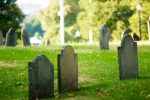By Matters India Reporter
Phulbani, October 31, 2019: Kandhamal District Collector Brunda D has set November 30 as the last date to claim additional compensation for the 2008 violence survivors as per the Supreme Court order.
In an advertisement published in local Odia papers October 31, she said, “This is to notify those who had received the compensation for the lives lost and houses destroyed in 2008 violence are to apply soon for the enhanced compensation and are eligible to get the additional compensation as per the Supreme Court of India order (wp (C) no. 404/2008).”
The victims who have not availed the additional compensation from the government since 2017 is directed to contact the District Collector Office at Phulbani without any further delay, she said.
No complaint or application in connection with the claiming of the additional compensation shall not be accepted after November 30 and the unclaimed funds will be returned to the government, the collector said.
A group of Church leaders, civil society members, human rights activists, and social workers had called for the implementation of the Supreme Court order on compensation to the survivors of Kandhamal violence.
They made the demand when they met the Kandhamal Collector on October 21, 2017, in Phulbani.
The collector had assured the group that she would ensure the distribution at the earliest as the compensation amount has come to the district.
The Supreme Court order came on a petition filed by the then Archbishop Raphael Cheenath of Cuttack-Bhubaneswar in 2008 seeking relief and justice for the Kandhamal victims.
Chief Justice T S Thakur and Justice Uday Umesh Lalit delivered the judgment on August 2, 2016. Archbishop Cheenath died 12 days later.
The case related to an unprecedented violence against Christians in Kandhamal district. Nearly 100 people were killed and 56,000 rendered homeless during the violence that started on August 24, 2008, and lasted for nearly four months.
The spark was lit by the assassination of Swami Lakshmananada Saraswati, a Hindu religious leader who had lived in Kandhamal for decades mainly to oppose Christian missionaries.
Maoist outlaws had claimed the murder, but Hindu radical groups blamed Christians for it.
The violence also destroyed 300 churches, institutions, and more than 600 homes. Some people were burnt alive for not accepting the Hindu religion.
In its judgment, the Supreme Court said that the quantum and scope of compensation provided for a few categories of damages was not satisfactory.
The apex court directed the Odisha government to pay in case of death 300,000 rupees in addition to what was given by the state and federal governments.
In case of serious injuries, it ordered 30,000 rupees additional compensation. For simple wounds the apex first time ordered compensation of 10,000 rupees.
The court found it quite disturbing that in 315 cases of communal violence filed no offenders or quantum of wrong-doing could be detected. It, therefore, asked the state government to review the cases and book the offenders.
The Supreme Court also found as odd that only 78 of the 362 cases that had completed trials resulted in conviction. It asked the state government to reopen the trials and ensure justice.
The group’s memorandum had asked the authorities to implement the judgment at the earliest.









